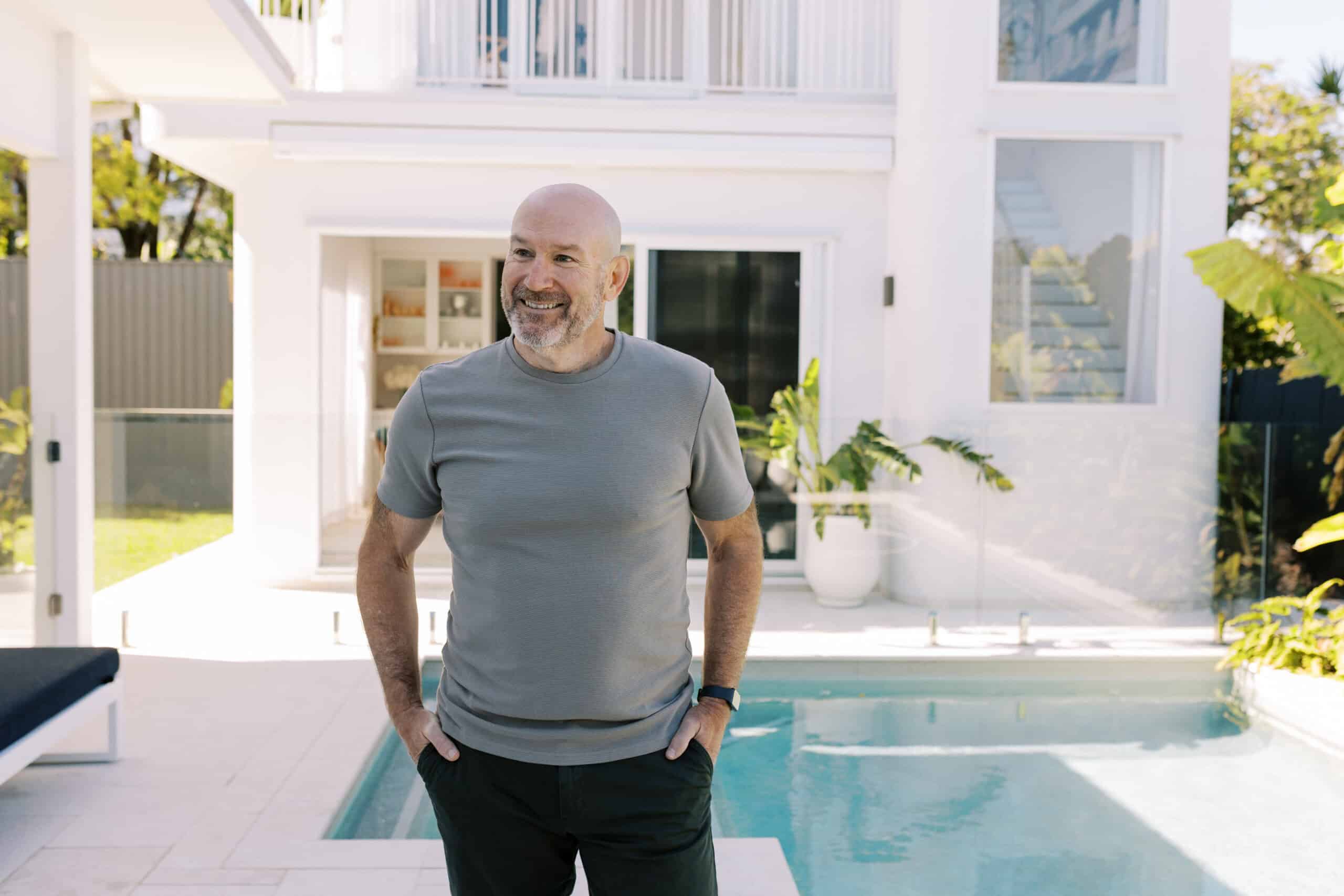Lessons from Dr Michael Mosley: Mindfulness
Dr Michael Mosley has left an incredible legacy that will continue to inspire a movement for better health. We will honour his legacy by reflecting on the lessons Michael taught us, covering topics including food, sleep, fasting, exercise, and the secrets to leading a happy life.
Dr Mosley was known for his openness and honesty when it came to his own mental health, and in his dedication to improving people’s lives he often shared the benefits that mindfulness can provide. He was a keen advocate of mindfulness and meditation, frequently making it the focus of his podcast episodes and TV programmes.
What is mindfulness?
Mindfulness provides a mental training framework for encouraging mindful awareness of everyday life. It’s the practice of raising your awareness of the ‘little things’, or things you may otherwise not usually focus on, and it’s been shown to be highly beneficial to both physical and mental health.1
Today we’re delving into the top lessons Dr Mosley taught us about this highly effective form of meditation, and why he believed it was one of the secrets to a happy life.
Join our email community
Learn more about The Fast 800 approach to healthy living by receiving our free content, health tips and recipes as well as exclusive offers, delivered straight to your inbox.
What Dr Michael Mosley taught us
1. There are many benefits of meditation: Mindfulness and meditation go hand in hand, and are equally beneficial to your health. Dr Mosley tested this on himself and took part in a BBC documentary that set out to explore whether he could change his outlook on life by trying meditation for just 10-20 minutes per day for seven weeks.2 He increasingly found that, through this new practice, he felt more positive and was sleeping better. Additionally, in his podcast ‘Just One Thing’, Dr Mosley explored how meditation has been shown to relieve stress, control pain and even increase immune responses to illness, relieve stress.3 Try out this 3-Minute Meditation to help get you started on improving your mental, and physical, wellbeing.
2. How you breathe affects your body and brain: Dr Mosley was a big advocate of adopting mindful breathing as part of a healthy lifestyle. He highlighted that “breathing is the most natural thing in the world… but how you breathe can have a profound effect on your body and brain.” He went on to refer to a Stanford University study which found that sighing reduces stress and boosts positivity, proving that mindful breaths can change our mood and brain.4 “Deep breathing switches on your parasympathetic nervous system,” shared Dr Mosley, “which acts like a brake, calming your body down. Long, deep breaths will slow your heart and also reduce your blood pressure. That way it reduces anxiety.”
3. The simpler the better when breathing mindfully: You don’t need expensive equipment or complicated classes to practise mindfulness or deep breathing. Dr Mosley reminded us, “while complex [mindfulness] practices exist, many easy, quick exercises can be worked into your daily wellness routine.” He shared, “I do a breathing exercise called 4-2-4. I breathe in for a count of four, hold it for two, then breathe out to a count of four. It’s a great way to calm things down if you’re struggling to get to sleep, or have woken up with your mind racing in the middle of the night.” His method is simple, and a good one to try regardless of age or lifestyle.
4. Mindfulness can help weight loss: Mindfulness has been proven to aid weight loss as studies have found that those who practise it when embarking on a weight loss journey are more likely to result in healthy weight loss and more sustained results.5 Paying close attention to the taste, texture, smell and satisfaction of the food you eat can help you to limit overeating. As Dr Mosley said, “by savouring your meals and eating slowly, maybe even putting down your knife and fork between each bite, you’re more likely to recognise when you’re full and avoid overindulging”. This habit is starting to be used in food-related disorders to increase fullness cues and reduce cravings.6,7
5. Drinking alcohol can be done mindfully: As well as encouraging mindful eating, Dr Mosley advocated that “mindful alcohol and drinking in moderation is key to a healthy life,” and that being aware of what and when you’re drinking is important. For example, studies have discovered health benefits of drinking a glass of red wine a day, however, they also found that too much has the opposite effect.8 In response, Dr Mosley encouraged mindfulness: “The sensible reaction to all this is not to give up drinking wine full stop, but rather to enjoy your wine, to savour it and have one or two glasses a night”, much like mindfully savouring your food to avoid overindulgence.
Dr Mosley’s invaluable guidance on mindfulness has helped bring positivity to many people’s lives. He truly led by example, taking part in studies, rather than just conducting them. We’re proud to continue his legacy of improving people’s wellness and aim to continue to do so with the same enthusiasm and honesty that he did.
https://www.sciencedirect.com/science/article/abs/pii/S0272735813000731?via=ihub
Summary accessed: https://www.veenaugargolyogatherapy.com/post/michael-mosley-changes-his-brain-with-mindfulness Original clip no longer available from here: https://www.bbc.co.uk/programmes/b036ypxw
Black DS, Slavich GM. Mindfulness meditation and the immune system: a systematic review of randomized controlled trials. Ann N Y Acad Sci. 2016 Jun;1373(1):13-24. doi: 10.1111/nyas.12998. Epub 2016 Jan 21. PMID: 26799456; PMCID: PMC4940234.
https://med.stanford.edu/news/all-news/2017/03/study-discovers-how-slow-breathing-induces-tranquility.html [Last accessed July 2024]
Asadollahi T, Khakpour S, Ahmadi F, Seyedeh L, Tahami, Matoo S, Bermas H. Effectiveness of mindfulness training and dietary regime on weight loss in obese people. J Med Life. 2015;8(Spec Iss 4):114-124. PMID: 28316717; PMCID: PMC5319254.
Giannopoulou I, Kotopoulea-Nikolaidi M, Daskou S, Martyn K, Patel A. Mindfulness in Eating Is Inversely Related to Binge Eating and Mood Disturbances in University Students in Health-Related Disciplines. Nutrients. 2020 Feb 2;12(2):396. doi: 10.3390/nu12020396. PMID: 32024270; PMCID: PMC7071141.
Palascha A, van Kleef E, de Vet E, van Trijp HCM. The effect of a brief mindfulness intervention on perception of bodily signals of satiation and hunger. Appetite. 2021 Sep 1;164:105280. doi: 10.1016/j.appet.2021.105280. Epub 2021 Apr 30. PMID: 33940054.
Castaldo L, Narváez A, Izzo L, Graziani G, Gaspari A, Minno GD, Ritieni A. Red Wine Consumption and Cardiovascular Health. Molecules. 2019 Oct 8;24(19):3626. doi: 10.3390/molecules24193626. PMID: 31597344; PMCID: PMC6804046.











